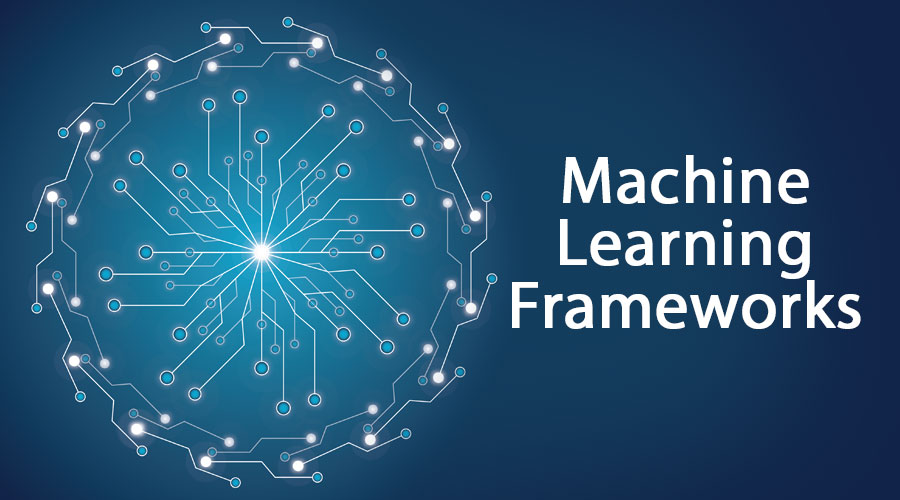Updated June 1, 2023
Introduction to Machine Learning Frameworks
A machine learning framework has been defined as a tool, library, or interface that allows developers to create machine learning models. Furthermore, the machine learning framework provides a standard way that the developers use while deploying these applications as the user can selectively change the generic functionality of the frameworks by their application code and thus follows the standard code development.
Top 10 Different Machine Learning Frameworks
Given below are the top 10 different machine learning frameworks:
1. Scikit-Learn
It is a free machine learning library built on SciPy (scientific python). It is used very extensively by Python Programmers. David Cournapeau developed it. You can do feature engineering with your data (increasing the number of features), scaling, pre-processing, and splitting your data into training and test subsets. It also includes machine learning algorithms like Linear Regression, Logistic regression, K–mean algorithm, and support vector machines. It is trendy because it can easily work with NumPy and SciPy.
2. Tensor Flow
It is also an open-source library for deep learning or machine learning algorithms using neural networks. Google creates it. Tensor Flow is a library for data flow programming; It uses various optimization techniques to calculate the mathematical expression, which is used to get the desired results.
The salient features of sci-kit learning are:
- It works great with a mathematical expression that involves multidimensional arrays.
- This tool scales well across multiple machines.
- It works with a wide variety of data sets.
- These features make it a helpful framework for deploying production models.
3. Amazon Machine Learning
As the name suggests, it is provided by Amazon. It is a service that developers can use to create models. Machine learning engineers can use it as a visualization tool and create models without knowing every detail of each model. It can run or create all kinds of models like Binary classification, multi-class classification ensemble algorithms, and regression models.
4. Azure ML Studio
This framework comes from Microsoft. So it works because it allows registered Azure users to create and train models; after that, you can use them as APIs to be consumed by other services. Users get up to 10GB of storage per account. It supports a wide variety of machine-learning algorithms. One very good feature about this is that even if you do not have an account, you can try out the service by logging in to the account anonymously, and you can use ML Studio for up to 8 hours.
5. MLib (Spark)
It is Apache Spark’s machine-learning product. It contains or supports all machine learning algorithms and utilities like regression classification (binary and multi-class), clustering, ensemble, and many more.
6. Torch
It is a scientific machine-learning framework that supports various machine-learning utilities and algorithms. The salient feature of this framework is that it puts GPU first. It has community-driven packages in machine learning, computer vision, image processing, deep learning, and many more. This tool primarily offers high scalability, flexibility, and speed in creating machine learning models. It is a framework to look for while building machine learning models.
7. Theano
It is built using Python. It allows us to define, create and optimize mathematical calculations. Like Torch, It can also use GPU, which helps in optimization and scalability.
8. Veles
It is written in C++, and it is a deep learning framework. Though it is written in C++, it uses Ppython to perform automation. It is mainly used in neural networks like CNN(convolution Neural Networks) recurrent neural networks.
9. H20
The name sounds interesting, but this framework allows us to apply maths and predictive analytics to solve today’s problems.
Moreover, it uses some combines some cool features like:
- Best of Breed Open Source Technology.
- Easy to use WebUI.
- Data Agnostic Support for all common databases.
- Along with using H2o, we can work on existing languages and extend them seamlessly with Hadoop.
10. Caffe
Developers created this deep learning framework with speed and modularity in mind. Berkeley Vision and Learning Center founded it mainly for use with neural network problems.
Conclusion
Every field today generates data, and analyzing and modeling that data using specific algorithms enables the production of improved future results. So, in short, that’s what machine learning does. It is an essential skill of the 21st century, and most frameworks are open-source with developer communities. It is one of the growing fields in technology and the IT field.
Recommended Articles
This has been a guide to Machine Learning Frameworks. Here we have discussed the introduction and top 10 different machine learning frameworks. You may also look at the following article to learn more –



